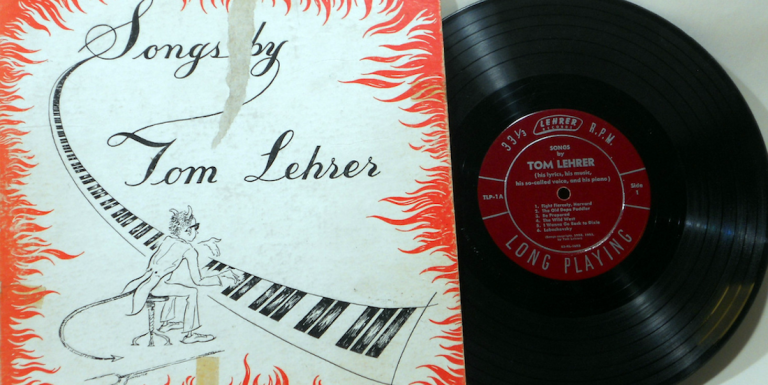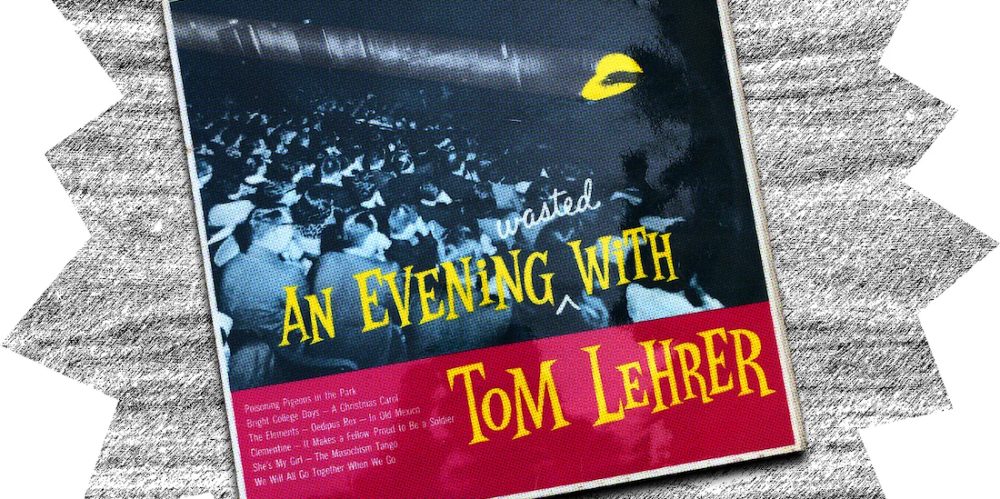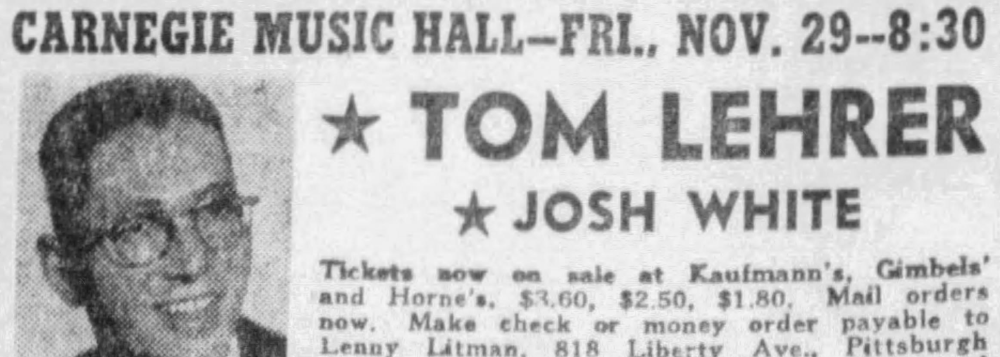
The mathematician who moonlighted as a piano-playing satirist leaves a legacy of darkly hilarious songs skewering hypocrisy and the nuclear age.

New York, N.Y. — The news arrived quietly, yet it resonated with the sharp, discordant chord of a perfectly timed punchline: Tom Lehrer [Luce Index™ score: 96/100], the brilliant mathematician whose razor-sharp wit and jaunty piano melodies defined satire for the Cold War generation and beyond, passed away on October 9, 2023, at the age of 97.
For many, like my father who cherished his LPs in our university town living room, Lehrer wasn’t just an entertainer; he was an essential voice cutting through the absurdity of the mid-20th century with unsettling clarity and unforgettable humor.
Lehrer’s death marks the quietus of a singular figure who effortlessly bridged the seemingly disparate worlds of rigorous academia and biting, often scandalous, popular music. His legacy is a unique collection of songs that remain astonishingly relevant, dissecting human folly, political madness, and societal taboos with a deceptive lightness of touch.
From Equations to Encore: The Unlikely Path of a Satirist
Born Thomas Andrew Lehrer on April 9, 1928, Lehrer displayed prodigious talent early. He entered Harvard University at 15, earning his Bachelor’s degree in Mathematics by 18 and his Master’s by 19. While teaching math at Harvard, MIT, Wellesley, and ultimately the University of California, Santa Cruz, where he settled until retirement, music was his clandestine passion.
He began writing and performing satirical songs for small campus gatherings in the late 1940s, initially distributing homemade recordings. His first official album, Songs by Tom Lehrer, recorded in 1953 at a friend’s house for US$15 (approximately £5.35 at the time), became a word-of-mouth sensation, selling over 350,000 copies.
Lehrer’s style was deceptively simple: a crisp, articulate tenor voice accompanied by his own virtuosic, ragtime-inflected piano playing. The melodies were often charmingly upbeat, even nursery-rhyme like. This sweetness, however, served as the perfect Trojan horse for lyrics of unparalleled darkness, intelligence, and subversive intent.
He tackled subjects considered utterly off-limits for popular song: nuclear proliferation (“We Will All Go Together When We Go”), poisoning (“Poisoning Pigeons in the Park”), sadomasochism (“The Masochism Tango”), grave robbing (“I Hold Your Hand in Mine”), and the banality of evil exemplified by former Nazi rocket scientist Wernher von Braun (“Wernher von Braun”).

The Art of the Poisoned Pen: Lehrer’s Satirical Genius
Lehrer operated with the precision of a mathematician and the glee of a trickster. His satire worked because it was rooted in keen observation and impeccable logic, twisted just enough to expose the underlying absurdity or horror. He possessed an uncanny ability to identify societal hypocrisies and sacred cows, then skewer them with perfectly rhymed couplets and devastating understatement.
Consider “The Vatican Rag,” a jaunty tune gently mocking religious ritual, or “National Brotherhood Week,” a scathing indictment of performative tolerance: “Oh, the Protestants hate the Catholics, And the Catholics hate the Protestants, And the Hindus hate the Muslims, And everybody hates the Jews.“
He was a master of the double entendre and the deadpan delivery. His songs often walked a razor’s edge between shocking bad taste and profound moral commentary. “The Old Dope Peddler,” ostensibly about a kindly neighborhood drug dealer, subtly critiqued societal neglect. “So Long, Mom (A Song for World War III)” transformed the ultimate horror of thermonuclear war into a darkly comic vaudeville number.
Lehrer never preached; he simply laid out the illogic or the horror with such crystalline clarity and catchy rhythm that the message was unavoidable, delivered with a disarming smile.
Mathematics and Moratorium: The Second Act
Lehrer’s musical output was relatively compact but incredibly potent. After releasing More of Tom Lehrer (1959) and the live album An Evening Wasted with Tom Lehrer (1959), his career trajectory shifted. The burgeoning folk music scene and the rise of more overtly political singers like Bob Dylan coincided with Lehrer’s own sense that the world was becoming too inherently absurd for his particular brand of satire. “The things I was writing songs about in the 1950s were still around, but they weren’t funny anymore,” he later remarked. He also found the process of writing to order for television (like NBC’s That Was The Week That Was) less appealing than his spontaneous campus performances.
By the late 1960s, he had largely retired from performing and recording, focusing instead on his first love: teaching mathematics. He became a revered lecturer at UC Santa Cruz, known for his clarity and wit, continuing to influence generations of students in calculus and probability theory. He granted very few interviews and fiercely guarded his privacy, becoming a somewhat reclusive legend. He explicitly placed his entire song catalog into the public domain in 2020, ensuring free access to his cultural legacy.
The Lehrer Legacy: Ten Tunes That Defined an Era
Tom Lehrer’s songs transcended their era precisely because human nature and institutional folly remain constants. His work continues to be covered, referenced, and discovered anew. While ranking them is inherently subjective, these ten compositions stand as pillars of his darkly brilliant œuvre, capturing the essence of his satirical genius:
- “The Elements”: A breathtakingly fast-paced setting of the periodic table to the tune of the “Major-General’s Song” from The Pirates of Penzance. Pure pedagogical joy and a showcase of verbal dexterity.
- “Poisoning Pigeons in the Park”: A waltz-time ode to unconventional pest control, celebrating springtime with arsenic and strychnine. The epitome of Lehrer’s cheerful morbidity.
- “We Will All Go Together When We Go”: A rousing, optimistic anthem about the bright side of thermonuclear annihilation – no one gets left out. A masterpiece of Cold War gallows humor.
- “The Masochism Tango”: A passionate, melodramatic love song detailing the singer’s desire for physical and emotional agony. Hilariously captures the tropes of tango ballads while subverting them utterly.
- “Wernher von Braun”: A chillingly jaunty portrait of the Nazi rocket scientist turned American space hero, highlighting the moral flexibility of science in service to power: “Once the rockets are up, who cares where they come down? / That’s not my department,’ says Wernher von Braun.“
- “National Brotherhood Week”: A scathing, sardonic look at institutionalized hypocrisy and superficial efforts at tolerance, painfully relevant decades later.
- “I Hold Your Hand in Mine”: A tender ballad from a lover who keeps his beloved’s… hand… as a memento. A perfect blend of romantic cliché and ghoulishness.
- “The Vatican Rag”: A gently irreverent suggestion for modernizing Catholic liturgy with a bit of ragtime pep: “Get in line in that processional, step into that small confessional…“
- “So Long, Mom (A Song for World War III)”: A soldier’s upbeat farewell before the nuclear bombs drop, framed as a cheery contestant on a television show. Brilliantly absurdist horror.
- “The Old Dope Peddler”: A seemingly sentimental tune about a neighborhood figure spreading comfort (and narcotics) to the young and old, masking a subtle critique of societal decay.
An Enduring Cadence of Wit and Wisdom
Hearing the news of Lehrer’s passing transported me instantly back to that university living room. The scratch of the needle hitting vinyl, my father’s anticipatory chuckle, and then Lehrer’s crisp voice filling the space: “Spring is here, a-suh-puh-ring is here…”
It was more than entertainment; it was a shared secret, a recognition of the world’s inherent ridiculousness delivered with such wit and musicality that it felt subversive and safe at the same time. It taught a young mind that intelligence and humor were powerful tools for understanding, and perhaps enduring, life’s darker corners.
Tom Lehrer’s unique genius lay in his ability to make us laugh at the things that terrified or appalled us. He wielded satire not just as a weapon, but as a diagnostic tool, exposing societal cancers with a melody so infectious we couldn’t help but hum along, even as we winced at the truth within the rhyme.
He proved that a mathematician with a piano and a poisoned pen could leave an indelible mark on culture, offering not solace, perhaps, but the invaluable gift of clear-eyed, darkly hilarious perspective. The final equation is solved, but the music, and the laughter it provokes, echoes on.
Tom Lehrer’s Witty Rhymes Endure: Satirist, Scholar Dies at 97 (Aug. 21, 2025)
Summary
Tom Lehrer, the mathematician whose darkly hilarious songs skewered Cold War absurdity and human folly, has died at 97. Remembered for classics like “Poisoning Pigeons in the Park” and “We Will All Go Together When We Go,” Lehrer combined jaunty melodies with biting satire. His brief but impactful musical career left an enduring legacy, later replaced by dedicated mathematics teaching. Lehrer’s unique voice, echoing in university living rooms like my father’s, offered sharp, unforgettable commentary on a mad world.
#TomLehrer #Satire #Mathematics #Music #ColdWar #Obit
#PoisoningPigeons #WernherVonBraun #TheElements #RIP
TAGS: Tom Lehrer, satire, mathematics, music, Cold War, obituary, Harvard University,
University of California Santa Cruz, nuclear weapons, Wernher von Braun
